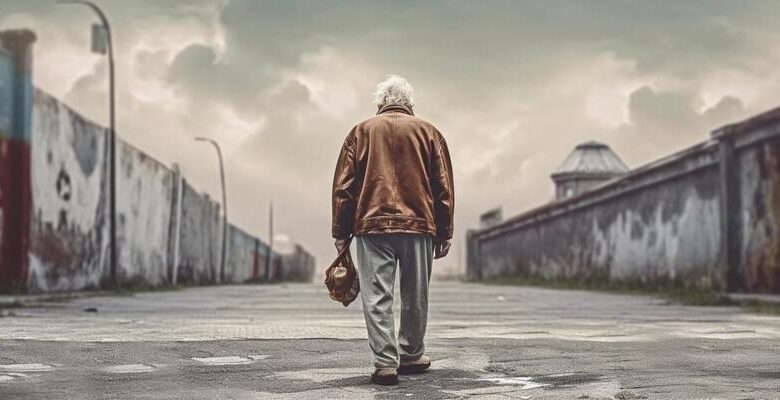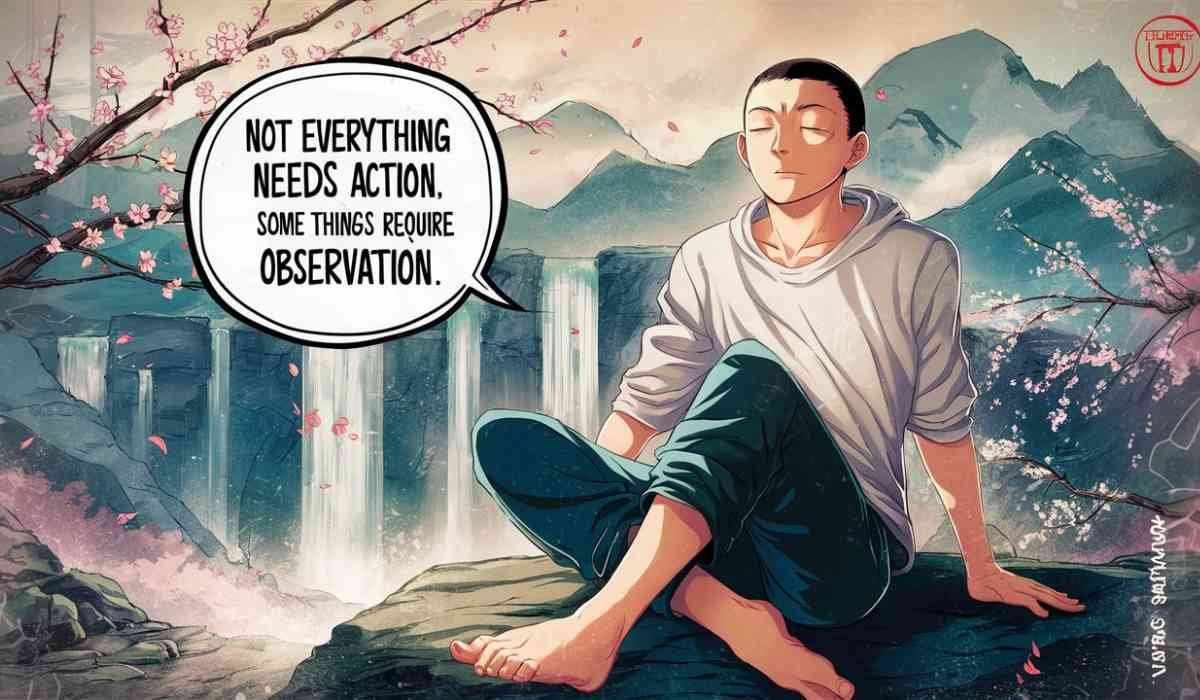Learn to sit back and observe. not everything need – tymoff Philosophy of Mindful Living

Learn to sit back and observe. not everything need – tymoff Everyday life seems like a dizzying combination of happenings and contacts and feelings. Human beings today act fast to handle everything from online comments to heated discussions and unexpected surprises. Many people benefit from adopting an observational mindset instead of responding to situations without thinking. Tymoff introduces the concept that our reactions should only occur when necessary thanks to his influential words. This piece goes in-depth to uncover the deep significance behind this thought and shows how implementing it leads to changed life navigation strategies.
The Power of Observation: Why Sitting Back Matters
Modern societies which emphasize instant reactions cause people to neglect the importance of being observant. Observation without action lets you learn about situations first hand to avoid premature judgments. The process of sitting back enables us to accomplish better decisions which demonstrate thoughtful analysis and measured results.
1. Observation Allows You to Understand Situations Better Learn to sit back and observe. not everything need – tymoff

Learn to sit back and observe. not everything need – tymoff Most reactions occur before we completely understand the environments or the factors that drive other people’s choices. A calculated distance helps us develop better understanding of a situation. When we observe we recognize overlooked aspects including body moves and expressions together with vocal intonations and background factors that get hidden during intense situations.
During a tense exchange with your work colleague picture this situation occurring. Rush decisions in this moment will cause the problem to worsen. Watching how people emotionally respond and think about their problem lets identify the core issue so you can address it effectively instead of emotionally.
2. Reduces Emotional Overwhelm
Learn to sit back and observe. not everything need – tymoff Our impulse to respond right away primarily emanates from passion rather than measured thinking. Rushed communication leads individuals to say things that create confusion after the fact. Conducting observation helps bring down your emotions leaving you able to respond more easily. As time passes observing helps lower emotional burdens which creates opportunity for controlled balanced reactions.
3. Enhances Your Ability to Learn
Systems encompass important lessons yet we typically fail to extract them because our reactions occur too rapidly. Watching others allows you to build patience while learning from their actions and choices together with their errors. Professionals benefit most from staying composed because maintenance of emotional control enables them to understand system dynamics better and sharpen their capabilities.
Not Learn to sit back and observe. not everything need – tymoff Deserves Your Reaction: You Need to Make Decisions About How You Want to Allocate Your Time and Willpower
Your personal reaction shouldn’t be directed at everything since some situations don’t require it. Human time and mental peace combined with energy supply need to become priorities we learn how to maximize correctly.
1. See Through Opportunities to Prioritize Meaningful Matters for External Issues
The reality today shows that numerous things competing for our focus usually stay unimportant. Small problems triggered by inappropriate social media posts or triggered by passing comments from strangers never merit consuming your precious energy reserves. Using discernment will let you concentrate on essential matters without having to handle nonessential things.
Anger directed toward a driver who cuts you off will worsen your stress levels especially when you respond negatively. Moving forward with your day after dismissal of these events maintains your peace and calm. The same method works for big problems including damaging relationship conflicts and political behavior at work.
2. Protecting Your Mental Health
When you respond to everything within your environment you risk burning out mentally. This pattern keeps you perpetually tense since you need to anticipate responding to upcoming triggers. The art of picking your engagement moments along with your disengagement decisions generates a healthier psychological state. Practicing this habit enables you to preserve mental composure while maintaining consciousness in demanding situations.
3. Building Inner Strength
Your ability to resist daily knee-jerk reactions proves more challenging than spontaneous impulsive actions. The practice requires both self-control capabilities and emotional sensing intelligence to ignore distracting situations. The habit creates inner strength across time so you become able to face life events with steady self-control.
How to Cultivate the Habit of Sitting Back and Observing
Acquiring the skill to observe without involvement demands discipline together with deliberate dedication. To integrate this habit into your everyday life follow these easy steps:
1. Pause Before You React
During those moments when you feel like acting right away just stop for a moment. Breathe deeply for a few seconds before you spend time understanding the current situation. When implemented after a situation begins this temporary stop can radically modify your response approach.
When somebody delivers a critical opinion about you such defensive reactions might immediately appear in your mind. Damaging comments gain less power when you create space to determine when they need a reply versus when no response is necessary.
2. Practice Mindfulness
Mindfulness teaches you to anchor inside each moment free from judging assessments. Through mindfulness practice you can develop the ability to observe events without emotional frenzies. Through approaches like meditation journaling and mindful breathing activities you can improve your capacity for strong mental focus.
Being mindful lets you recognize what is happening inside you along with your surrounding environment. By becoming mindful of your surroundings you gain the ability to think before you act directly.
3. Set Boundaries
Your involvement should only happen when a situation demands it and the individuals involved deserve your energy. Protocols for boundary setting represent an essential element required to embrace Learn to sit back and observe. not everything need – tymoff strategies. A proper set of boundaries shields your mental peace while you concentrate on crucial aspects of life by blocking futile disputes and destructive relationships.
4. Reflect on Your Reactions
Analyzing prior moments in which you displayed quick anger responses forms an essential part of following Learn to sit back and observe. not everything need – tymoff approach. Ask yourself:
Was my reaction necessary?
Did I select another method to address the situation?
This experience taught me what I should have learned.
Examining how you respond allows you to notice standard behavior so you can modernize your responses for upcoming situations.
Benefits of Embracing Learn to sit back and observe. not everything need – tymoff Philosophy
Sitting back to observe offers deep advantages that strengthen your everyday life and career.
1. Improved Relationships
Your ability to sit back instead of reacting opens doors to richer and more intense relationships. When you learn to observe others’ viewpoints you develop stronger relationships which combine empathy with respect.
2. Enhanced Decision-Making
When you dedicate time to observation your choices will appear clearly and you’ll exhibit confidence in your decisions. With clear observation skills you can stand above external pressures to make rational decisions that produce the most beneficial outcomes.
3. Greater Peace of Mind
The biggest advantage of watching from a distance brings you complete peace of mind. Stepping away from the compulsion to respond in every situation delivers personal liberty that guards against stress and redundant fights and ongoing global background noise.
Conclusion
The philosophy of observation advocates we should Learn to sit back and observe. not everything need – tymoff from situations instead of automatically reacting to them all the time. Wise commentary “Not everything needs your reaction” serves not only as saying but demonstrates a lifestyle path. This world filled with instantaneous demands pushes people to stop reacting first to instead carefully observe situations and choose battles purposefully.
Observatory practices help you protect your peace while simultaneously developing wisdom and resilience and improving your level of clarity. Before taking action pause to think twice because unwanted situations do not require a reaction from you. Through deliberate observation you will likely discover key solutions you need and want to achieve.